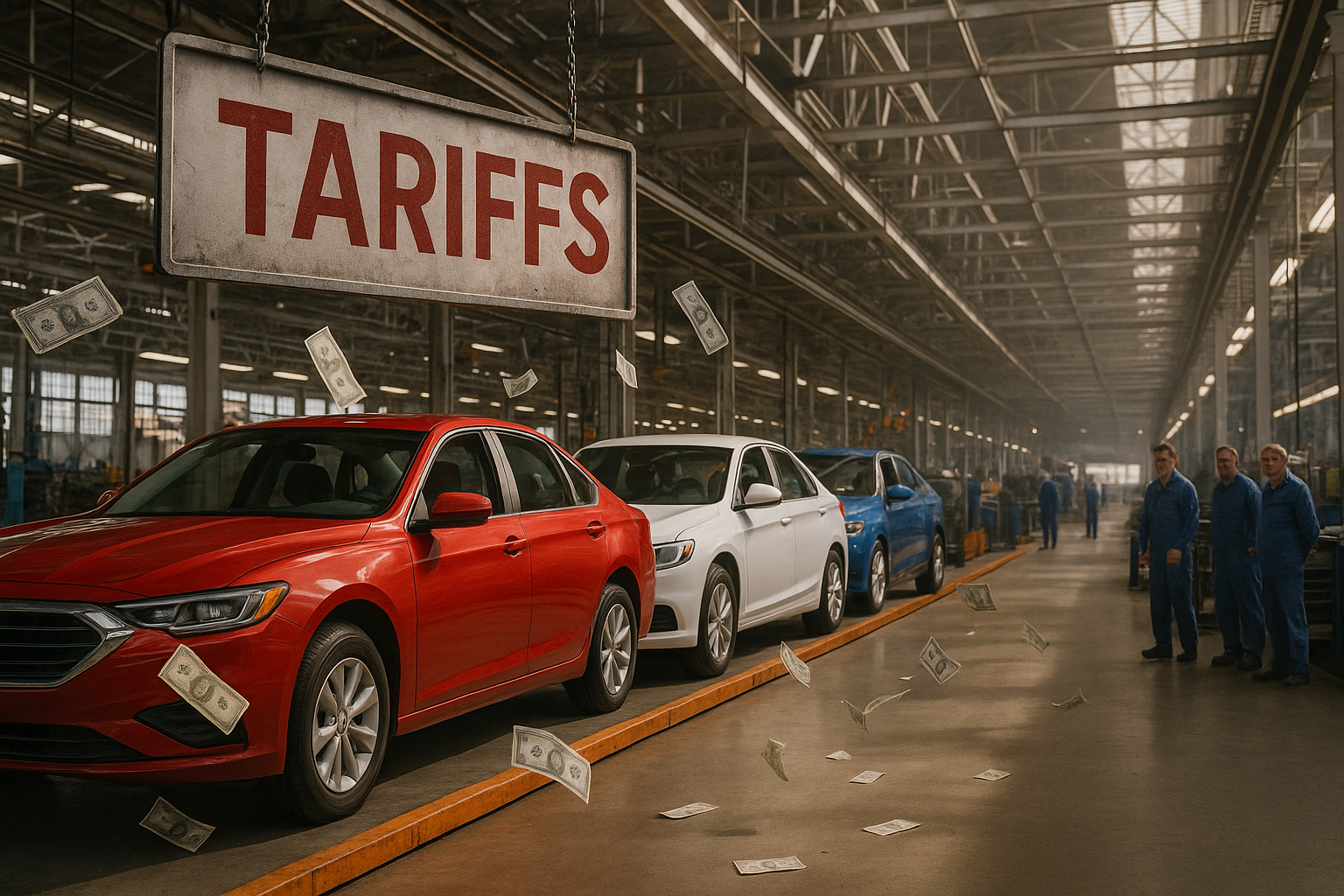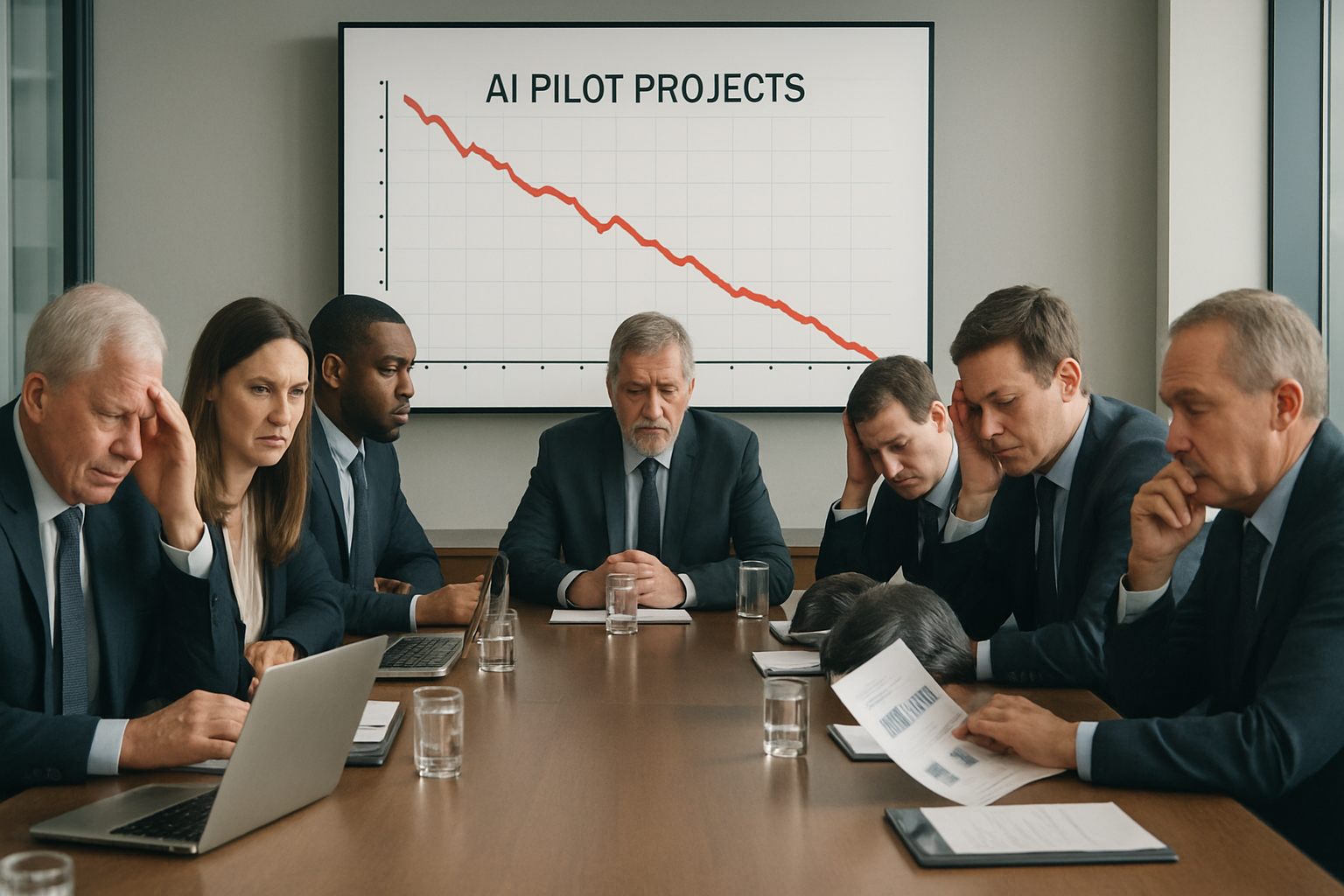Michigan's auto industry has taken a staggering $2 billion hit in the second quarter alone due to tariff policies, Governor Gretchen Whitmer announced yesterday. And that's not even the worst part—some 7,500 jobs have vanished along with those dollars.
The timing couldn't be more politically charged. Michigan, that perpetual battleground state, finds itself watching its economic backbone crack under pressure just months before voters head to the polls. Coincidence? I think not.
Look, I've covered Michigan's manufacturing sector since before the last recession, and there's a depressing familiarity to what's happening. Trade wars sound tough and decisive when announced at rallies or press conferences. Then reality sets in.
The problem is painfully simple. Modern auto manufacturing isn't the self-contained operation your grandfather might remember. These days, components zigzag across borders—sometimes multiple times—before a vehicle rolls off the assembly line. Each crossing now comes with a tariff toll.
"We're essentially taxing our own production," a senior executive at one of the Big Three told me last week, requesting anonymity to speak frankly. "It's like punching yourself in the face and wondering why your nose hurts."
Those 7,500 lost jobs? They're not just statistics. They represent families, mortgages, college tuitions suddenly in jeopardy. I visited Macomb County last month and spoke with former assembly workers whose severance packages are already running thin. The ripple effects touch everything from the local diner to the school tax base.
The math gets ugly fast. If Q2's $2 billion hit continues at the same pace, we're looking at an $8 billion annual impact. That's enough to fund development of entirely new vehicle platforms—investments now at risk of delay or cancellation.
Michigan's auto industry was already navigating treacherous waters. The electric vehicle transition has upended traditional production methods, battery supply chains remain volatile, and consumer preferences shift like sand. Adding tariff complications to this mix is like tossing an anchor to a swimmer crossing rapids.
(Worth noting: Foreign automakers with U.S. plants face similar challenges, though their supply chains are structured differently. Their pain just manifests in different ways.)
Governor Whitmer's announcement carries obvious political weight. By explicitly connecting job losses to specific policies, she's firing a warning shot across the bow of campaigns crafting their economic messages for November. In Michigan, auto jobs aren't just employment statistics—they're cultural touchstones.
The industry faces impossible choices. Reshoring production means massive capital investment at a time when margins are already under pressure. Absorbing tariff costs threatens profitability and shareholder returns. Passing costs to consumers risks losing market share to competitors with different supply chains.
I've seen three major trade policy shifts during my years covering the industry. Each time, executives insisted they would adapt. Each time, adaptation came slower and cost more than anyone predicted.
What makes this situation different—and potentially more damaging—is the collision with the industry's generational shift toward electrification. The billions being lost to tariffs represent capital that should be funding the future.
"We're fighting yesterday's battle while trying to win tomorrow's war," as one UAW shop steward put it to me, surprisingly poetically, during a plant visit in Flint.
For workers, the frustration is palpable. Many supported stronger trade positions, believing they would protect American manufacturing. Instead, they're watching global economic forces and policy decisions create a perfect storm that threatens their livelihoods.
And here's where it gets really interesting—in an election year, economic pain translates directly into voter sentiment. Michigan's electoral votes have decided presidential contests before, and they might again. The question is whether voters will connect their economic circumstances to specific policies when they enter voting booths.
The auto industry won't collapse overnight. It's too resilient, too essential. But what we're witnessing is death by a thousand cuts—or in this case, death by a billion tariffs.
For Michigan, a state that has reinvented itself repeatedly through economic transitions, this latest challenge strikes at its core identity. The road ahead looks bumpy, and the navigation system keeps recalculating.




